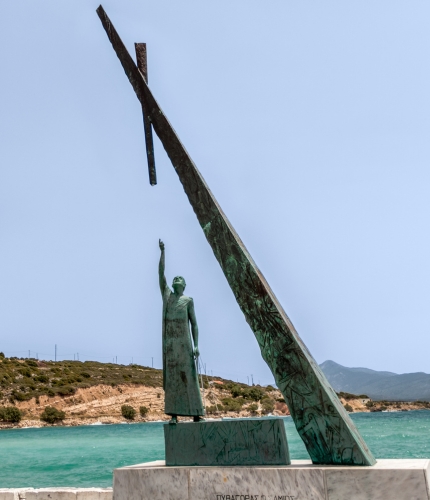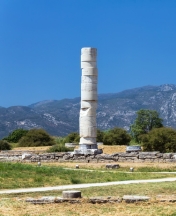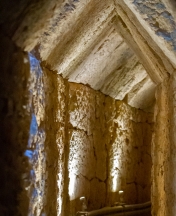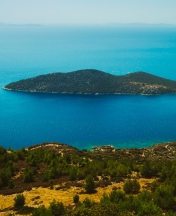According to archaeological excavations, it is believed that Samos was inhabited during the Neolithic period, in the 3rd millennium BC. The first settlers of the island were the Pelasgians, the Phoenicians, the Leleges and the Carians. These settlers were succeeded by the Mycenaeans. Samos became a great power in the 6th century BC when it was ruled by the tyrant Polycrates, who turned the island into a huge naval power. Under his rule, the arts and sciences flourished and the tunnel of Eupalinos and the magnificent Heraion were built. The history of Samos has been marked by some famous personalities, such as the astronomer Aristarchus, the first to claim that the sun was the center of the universe, the philosopher Epicurus, the mythographer Aesop and the famous mathematician Pythagoras. During the Battle of Plataea (479 BC), the Samians helped Athens win and then allied with it and returned to democracy. Samos took part in the Battle of Mycale and with the rest of the Greek navy defeated the Persian fleet. During the Peloponnesian Wars, the island was occupied by the Spartans. It then came under the rule of the Romans, the Venetians and the Genoese. In 1453, Samos came under Turkish rule. The inhabitants of the island played an important role during the Greek Revolution against the Turkish yoke in the early 1820s. However, the Great Powers gave the island back to the Turks in 1830, making it semi-autonomous and ruled by a Christian prince. Samos was finally reunited with the rest of Greece in 1912, after the Balkan Wars. Today, the economy of the island is based on tourism, agriculture and fisheries












